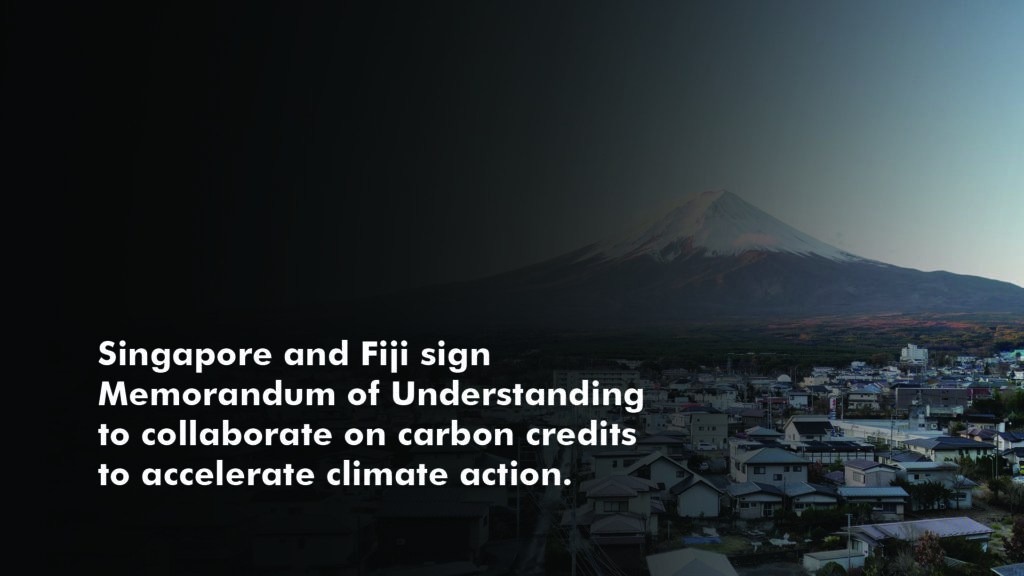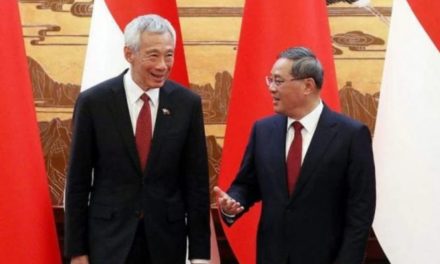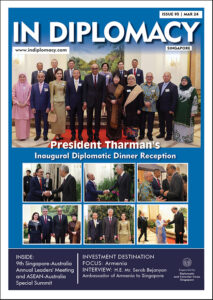Singapore and Fiji have formalized a collaborative effort to accelerate climate action through the signing of a Memorandum of Understanding (MOU) on carbon credits, in alignment with Article 6.2 of the Paris Agreement.

Singapore, represented by Minister for Trade and Industry Gan Kim Yong, and Fiji, led by Prime Minister and Minister for Climate Change Sitiveni Rabuka, took a significant step towards addressing climate change. The Memorandum of Understanding (MOU) they signed aims to foster cooperation on carbon credits, as specified in Article 6.2 of the Paris Agreement. This pivotal agreement was announced today following a meeting between Senior Minister and Coordinating Minister for National Security Teo Chee Hean and Fiji Prime Minister Rabuka on the sidelines of the 2023 United Nations Climate Change Conference (COP28).
The MOU signifies the inaugural phase of collaboration between Singapore and Fiji in the realm of carbon markets, recognized as a crucial tool for advancing global climate action and achieving the objectives outlined in the Paris Agreement. By mobilizing financial resources, such partnerships can unlock additional mitigation outcomes, thereby assisting both countries in meeting their respective climate targets. Notably, the collaboration emphasizes sustainable development and seeks to bring about co-benefits for local communities and the economy.
Minister Gan underscored the shared vulnerability of Singapore and Fiji to the impacts of climate change, highlighting the MOU as a forward stride in the joint effort to expedite climate action. Both nations, being members of the Alliance of Small Island States (AOSIS), recognize the urgent need for coordinated action in the face of climate challenges.
To ensure the effective implementation of this agreement, a working group comprising officials from both Singapore and Fiji governments has been established. This group will oversee and facilitate the execution of the MOU, underlining the commitment of both nations to tangible progress in addressing climate change.
Source – MTI

















